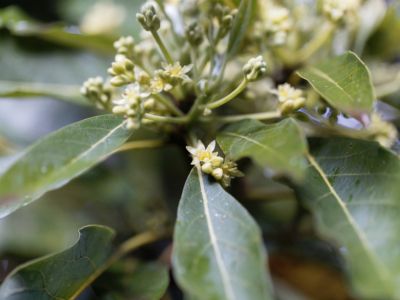Bud Mite Pests of Avocado
Although avocados may be afflicted with a number of pests, a common offender may be spider mites. There are a couple of different types of spider mites that commonly attack avocados. Treating avocado bud mite problems means identifying which mite is causing the damage. The first candidate is the Persea bud mite and the second is the avocado bud mite.
Persea bud mite information
Persea mites (Oligonychus perseae) are found feeding in colonies along midribs and veins on the undersides of avocado leaves. Their increased feeding produces the most damage by late summer and involves defoliation of the trees. This increased defoliation increases the risk of sunburn to new fruit, which results in premature fruit drop. The defoliation also promotes new growth, which fosters thrips populations. The Persea bud mite was first identified in 1975 on avocadoes that had been shipped from Mexico and were quarantined in El Paso, Texas. These mites are sensitive to temperature and humidity changes but their populations burgeon in areas of moderate temps influenced by cool marine air.
What are avocado bud mites?
Avocado bud mites (Tegolophus perseaflorae) are found on buds and newly developing fruit. Their feeding increases from March to May, resulting in necrotic spots and fruit deformities. Mites are yellowish in color and can only be observed with a hand lens.
Persea and Avocado Bud Mite Control
Both T. perseaflorae and O. perseae are referred to as “avocado bud mites.” There is little doubt, however, that they are spider mites with similar attributes. Spider mites, in general, live between 5-20 days. Females lay several hundred eggs in their short lifetime and the eggs can overwinter – all of which makes treating avocado bud mite problems difficult. The industry practice is to apply foliar applications of insecticides to control the mites. There are a few miticides used in commercial groves for treating bud mites on avocado trees. Sulfur oil emulsion sprays are recommended for use. A narrow range 415 oil sprayed on the tree prior to bloom time may also help, but the coverage needs to be thorough. A predatory mite is also showing promise at combating avocado mites. Neoseiulus californicus is commercially available but cost prohibitive at this point. There are a few avocado cultivars that have shown some resistance to the mites, with Lamb Hass being the most resistant.
